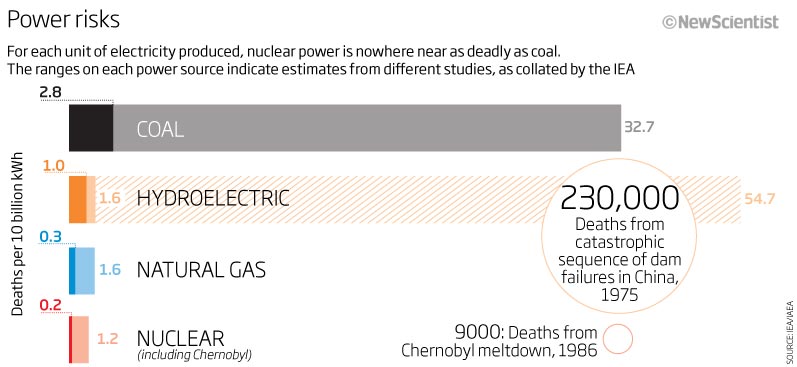There have been several questions related to nuclear power in comparison to other forms of electricity production:
- Are there fewer accidental deaths at nuclear power plants than others?
- Do coal plants release more radiation than nuclear power plants?
The first considers only accidental deaths, not all forms of deaths (such as deaths caused by normal radiation or pollutant release). The second considers only radiation released.
What I would like to know whether nuclear plants cause less total deaths per kWh produced when compared to other forms of electricity production. So, for example for wind power, the deaths would include deaths from maintenance personnel falling from heights, a risk they have chosen to take. The same is true for solar power as well, although the height of a typical roof is lower. For coal, oil (yes, I know it isn't that much used anymore) and natural gas it would include deaths caused by pollution release.
So, does nuclear power cause less total deaths than other forms of electricity production? My intuition would be yes, given the massive safety precautions of nuclear power, but I would like to have evidence backed by hard data.
Extra points will be given if the answer divides the deaths into those that are due to involuntary risks (such as coal pollutants causing health problems) and those that are due to a risk somebody has chosen to take (such as working in wind or solar power projects, or working in a nuclear power plant).

